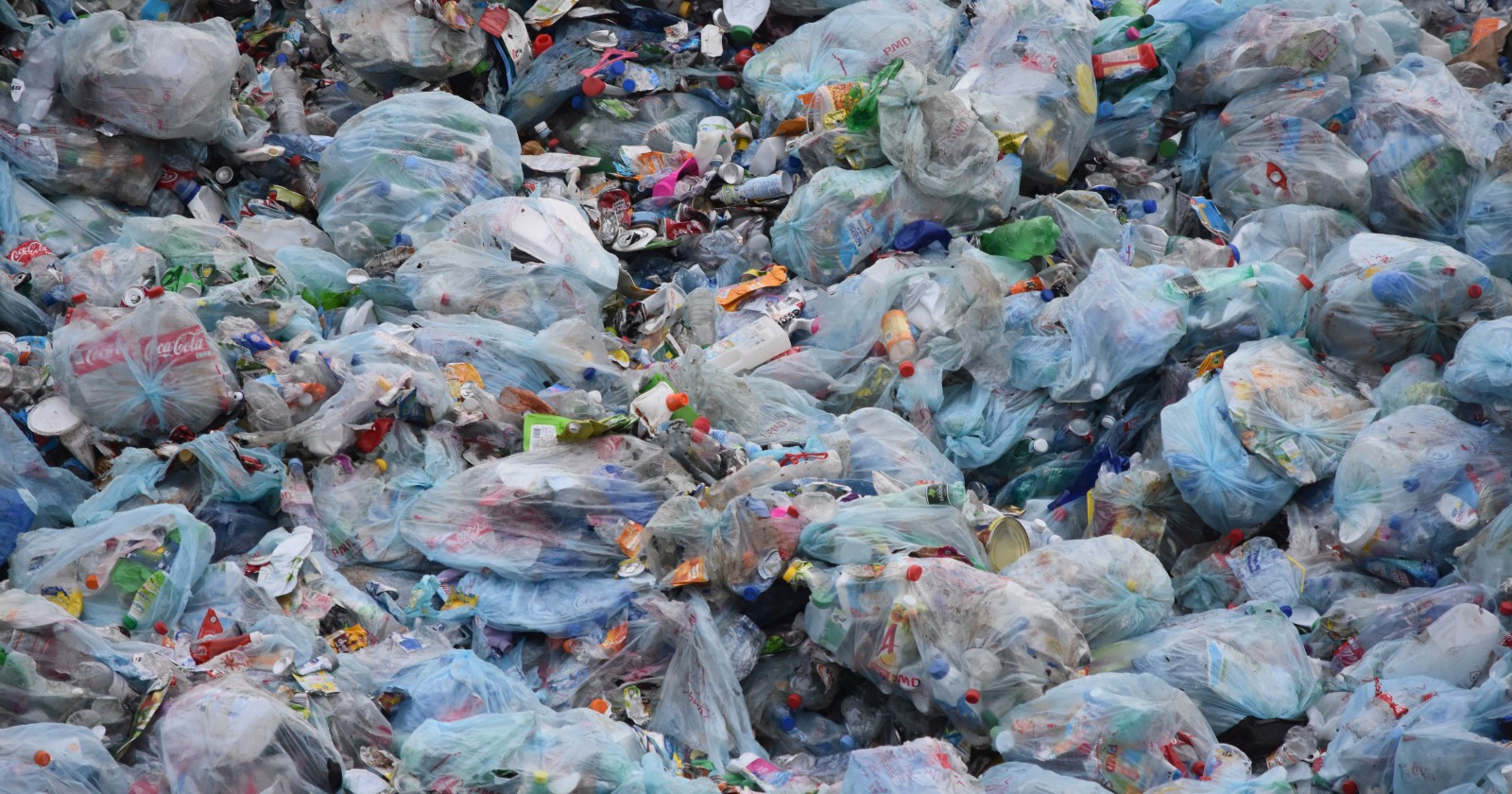
Less Waste — We Don’t Want to Drown in Trash08.10.2018
The media covers the extent of the environment’s contamination with plastic in fits and starts. Triggered by different events—heat waves with spates 30+-degree days, data from recently published UN reports—the coverage usually precipitates a short-lived panic that feeds on images of plastic-strewn beaches, bizarre weather phenomena, strangled animals, drifting patches of seaborne trash. It also feeds on searing reports about the hopelessness of the situation.
We produce over 400 million tons of plastic every year and the number is expected to double in the next ten years. Since 2015, only 9% of all plastic waste has been recycled, leaving the overwhelming majority, namely 79%, stuck in landfills. Over 40% of all manufactured plastics have been used only once and then discarded, despite the fact plastic has an estimated lifespan of a thousand years. Plastic trash or microplastics can be found on 73% of all beaches worldwide. Experts believe that without immediate worldwide changes, by 2050, 99% of marine birds will have ingested some form of plastics, while plastic itself will overtake fish as the most abundant component of marine environments.
Less Rather Than Zero
The growing awareness of the seriousness of the situation compels us to look for solutions. In the Polish context, some solutions have been implemented under EU-wide directives (in 2019, regulations will impose production quotas on plastics manufacturing across member states, and by 2025 the EU is intending to recycle 55% of its plastic waste), while others have been put into place by state and local authorities—including the 20gr (0.2 PLN) charge for plastic shopping bags introduced in 2018, and the 2017 bill introducing mandatory waste segregation. However, changing environmental policy is one thing, enforcing it is another. And if these policy changes are to be successful, they need be accompanied by a widespread shift in social attitudes.
To address these needs, the zero waste movement developed what its proponents, including the Polish Zero Waste Association, call the 5 Rs—refuse, reduce, reuse, recycle, and rot. In lieu of strongly-worded manifestos, the most fervent adherents of the movement began posting pictures of jars filled with all the waste that they produced in the course of a single year. In Poland, this extreme approach to implementing the zero waste philosophy in everyday life has given way to a less zealous variant, the less waste movement, whose objectives are definitely more achievable, especially for those feeling more comfortable with smaller steps and approachable solutions.
Worms Munching on Peelings
One of the movement’s leading proponents in Poland, Paulina Górska, runs a blog called “ekopolkablog.pl” and the “Eko.Polka” accounts on Facebook and Instagram. Using these social media outlets, Górska publishes advice and tips on how to take better care of the environment and limit your own waste production. “Less waste is primarily a way of leading a more conscious life and a process of unceasing change and adjustment,” Paulina claims. “And it’s a way that you don’t go back on, because everything you learn along the way stays with you and forces you to reevaluate every decision you make. The small steps I encourage people to make through my social media channels often quickly turn into habits,” she adds.
Paulina always has tote bags on her person and a reusable bottle for tap water. “Every minute, over a million plastic bottles are sold around the globe. Only in 2016 a staggering 480 billion of them were sold, and a single one has a lifespan of over 500 years. Carrying your own water bottle with a filter is enough to slash your own contribution to these figures,” she explains. She even replaced the catering company that serviced her firm with one that delivers the food in thermoses rather than single-use packaging. “In Poland we end up wasting around 9 million tons of food every year. To put that in a more personal perspective, every European on the continent throws around 175 kg of food into the trash,” she adds. That’s why Paulina freezes leftover bread, plans her grocery shopping to minimize waste, and browses the Web for recipes making the best use of leftovers.
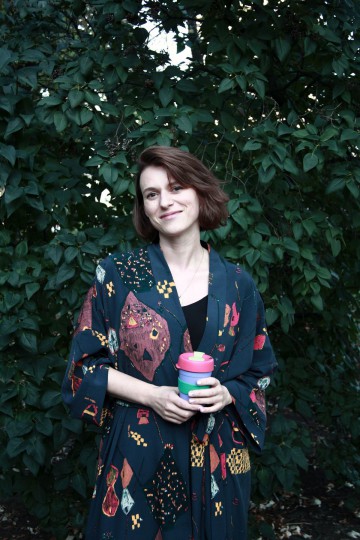
Paulina started reading up on environmental matters and the less waste movement when she got pregnant and began taking an interest in her own diet, buying habits, and homemaking philosophy. “I realized that even the most minute choices had an impact on my family’s health and, in a broader perspective, also on the environment itself. No longer could I pretend my lifestyle to be a private matter,” she says.
Although she also freely admits that sticking to a less waste-oriented lifestyle can carry considerable costs—in terms of money, effort, and the time it requires—her own experience is testament to its ultimate feasibility. Combining her lifestyle with a full-time job and raising a two-year-old toddler, Paulina says that finding relevant sources of expertise and absorbing it was the most challenging aspect of the journey, which is why now she wants to make it easier for newbies to begin theirs. “Less waste is essentially about buying less—less clothes, less stuff, less food. We buy only as much food as we can realistically consume, which leaves us with less leftovers and more money to buy better quality, organic products. ‘Less is more’ is the cardinal rule: instead of five shirts, I’ll have one that was manufactured in line with fair trade principles. But before buying, I’ll still look through the closet to make sure I really need a new one,” she explains.
Paulina also composts her organic waste. In a handmade crate that sits on her small balcony, she keeps a heap of compost that is home to a worm farm that she feeds every day with ground organic waste from her kitchen. “People think that you need a garden and pricey equipment to begin composting. Well, I do it on a small balcony in a DIY composter that I built at a composting workshop,” Paulina says. “My toddler is absolutely amazed by it and I hope to use it to get her interested in environmental issues. This is all the more important given that the school curriculum doesn’t include even the most rudimentary classes on waste segregation and its importance. Shifting social attitudes will require at least a generation,” she adds.
Coffee Grounds Buy Plants
Paulina’s not the only one to take up the challenge of urban composting. STOR Cafe, a small café in the Warsaw district of Powiśle, renowned for its excellent coffee and unique interior design, is widely considered one of the best examples of a company embracing the less waste approach. “Running a café or any other establishment, you produce tons of waste. And we believe it is our responsibility to reduce that amount,” says Kuba Turniak, STOR’s general manager. He sees introducing less waste-oriented solutions as an ethical obligation, and demonstrating that choosing seemingly simpler means and efforts can end up being harmful not only to the environment, but a company’s PR image, too. “Many of our patrons appreciate our stance on the environment and have become regulars because of it. Some also said that our attitude encouraged them to take a greater interest in the environment. We learn from our customers, and they learn from us,” Kuba adds.
To an extent, embracing the less waste approach allows them to recoup some of the costs. “Some solutions allowed us to cut outlays, while others require additional expenditures after the changes,” Kuba admits. “Organic products and biodegradable packaging are definitely pricier, but all food and drink establishment owners will ultimately have to deal with these costs sooner rather than later,” he adds.
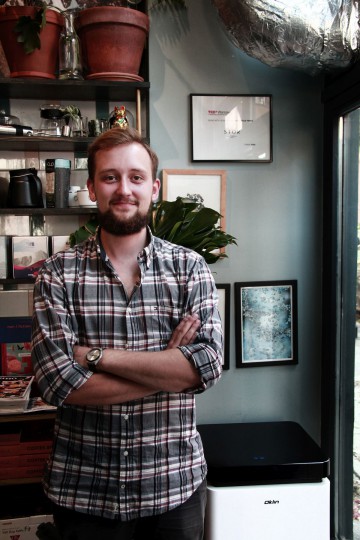
At STOR, coffee to go is sold exclusively in bioplastic cups made of corn starch, while meals are served with wooden cutlery. The café requires its suppliers to strip deliveries of plastic packaging, and if that’s not possible, the staff tries its best to reuse the plastics. “Single-use paper towels produced the most waste, so we essentially replaced them with cotton or canvas rags. By using one rag for wiping down tables and counters, another one for wiping down knives, etc., we easily slashed the amount of paper waste we were generating every day, while also saving money in the process,” Kuba says.
If they have food left over at the end of the day, the staff turns it over to foodsharing co-ops, while remaining leftover organic waste goes into the composter standing in the corner of the café. It looks like a small refrigerator and, despite some initial fears, does not give off any unpleasant smell. The bacteria inside turn organic waste into natural compost that is later used in the café’s sister establishment, the Roślinny STOR [PlantSTOR], a flower and plant shop across the street. They also give it away to interested customers. Such an approach to recycling is highly inspiring and has already yielded multiple creative initiatives. For example, the café staff has refurbished the grating taken off the front window of Roślinny STOR into a railing for vines and hanging potted plants. Currently, the staff’s also working on DIY air fresheners.
Mainstream in Service of the Environment
STOR has been inspired to embrace this pro-environment approach by Areta Szpura, one of the faces of the less waste movement in Poland and founder of the internationally acclaimed LocalHeroes clothing brand. “My need for change began with clothes, actually. I realized how terrifying it was that no one was really trying to acknowledge how damaging the clothing industry is to the planet,” she says. Today, she’s mostly focused on environmental activism. Using her social media outlets as a platform, she promotes conscious consumption and other issues broadly related to the less waste philosophy. “It dawned on me that the ability to be widely heard is a tremendous privilege. So I decided to make use of it,” Areta says. In her opinion, the less waste lifestyle is mostly about anticipating your choices. “Plastic is ubiquitous, because it makes our lives easier and eliminates the need to think about anything. If I want to have an ice coffee to go or pick up food on the way home, plastic allows me to do so without planning ahead. But it only takes us picking up a reusable bottle, coffee cup, a tote bag for groceries, or a box for takeout to slash our own plastic footprint,” she adds.
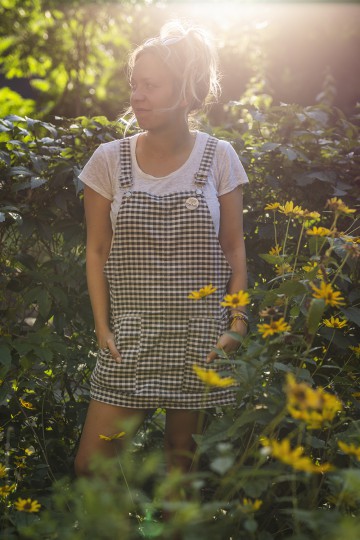
Areta believes deeply in the Internet’s power the change the status quo. “Every single person with Internet access can easily mine it for knowledge. Environmentalism is no longer a preserve of city-bound elites and embracing a more pro-environment lifestyle no longer requires specialist products or a specific level of disposable income. To make your own household cleaning products, for example, you only need ingredients readily available in most retail outlets, such as citric acid, baking soda, or vinegar,” Areta says.
Asked about whether a pro-environmental stance is a privilege of the well-off, she replies: “We shouldn’t be sparing any expense when it comes to the environment, it should be a priority.” She also believes that choosing the less waste lifestyle is cost heavy only at first glance. “Ultimately, it’s an investment. You’re better off eating high-quality, organic food, because doing so supports not only the environment, but contributes to your own wellbeing. In the long term, spending more on organic food can end up saving you a lot more money you’d otherwise spend on medical bills. This is what less waste is essentially about, thinking in the long term. Besides, you’re much better off not buying certain things,” she laughs. “We’re surrounded with unnecessary everyday use items which we can give up without much of a bother. That’s why the first stage of my campaign focuses on single-use straws. Naturally, straws make up only a fraction of all seaborne plastic waste, but giving them up won’t be much of an inconvenience. And so, fraction after fraction, we can make a real change,” she explains.
In Areta’s opinion, the greater reach of celebrity voices should absolutely be used to promote important causes. “It’s the positive aspect of celebrity. Taking better care of the environment is extremely important, especially now. This is our last chance, we need to make lasting adjustments to our lifestyles and do it now. And embracing less waste definitely has a snowball effect. One change quickly follows another. If this particular subject makes it into the mainstream, we’ll be one step closer to giving that snowball the push it needs.”
see also
- New Film from "The Room" Director. Tommy Wiseau Unveils Trailer for "Big Shark"
News
New Film from "The Room" Director. Tommy Wiseau Unveils Trailer for "Big Shark"
- Ten Films in a Single Trailer. Famous Actor Edited a Fan Trailer for the Star Wars Saga
News
Ten Films in a Single Trailer. Famous Actor Edited a Fan Trailer for the Star Wars Saga
- The Whole of "The Office" in Four Days, and "Mad Men" in Three Without Breaks. See the Calculator for Binge-Watchers

News
The Whole of "The Office" in Four Days, and "Mad Men" in Three Without Breaks. See the Calculator for Binge-Watchers
- A wild herd of cars. See how the latest Toyota Hilux campaign was created
 Papaya Films
Papaya FilmsNews
A wild herd of cars. See how the latest Toyota Hilux campaign was created
discover playlists
-
Instagram Stories PYD 2020
 02
02Instagram Stories PYD 2020
-
 03
03 -
PYD: Music Stories
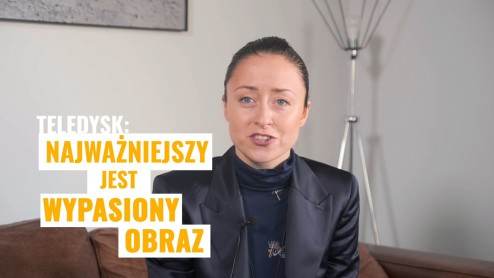 07
07PYD: Music Stories
-
Papaya Young Directors 6 #pydmastertalks
 16
16Papaya Young Directors 6 #pydmastertalks
